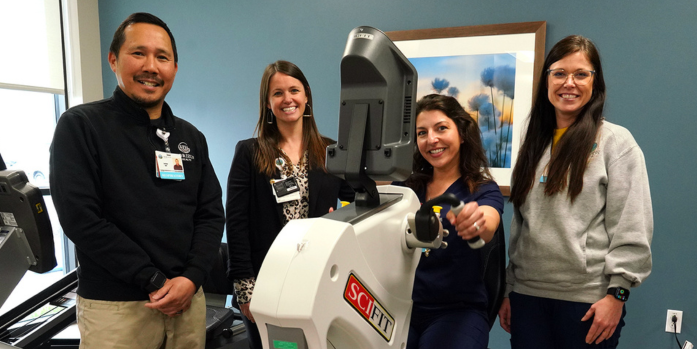Understanding the Issues of the Heart
- Category: Blogs, Cardiology
- Posted On:
- Written By: Horizon Health

 “What you don’t know can hurt you” is a cliché that often rings true, especially regarding your heart health. February is American Heart Month, and Paris Community Hospital offers encouragement to help avoid or control heart disease and knowledge to help you learn more about heart disease, its symptoms, risk factors, diagnostics, and treatments.
“What you don’t know can hurt you” is a cliché that often rings true, especially regarding your heart health. February is American Heart Month, and Paris Community Hospital offers encouragement to help avoid or control heart disease and knowledge to help you learn more about heart disease, its symptoms, risk factors, diagnostics, and treatments.
For our Paris, Illinois community, Paris Cardiology Services provides expert, compassionate treatment for those suffering with problems of the cardiovascular system. Early detection and treatment of heart disease cannot be overstressed. After reading this article, if you believe you have symptoms of heart disease, call your Paris Cardiology Services at (866) 465-4141 for more information and an appointment.
Types of Heart Disease
Heart disease is a general term for several specific cardiology issues and can include the following:
- Coronary Artery Disease (CAD) results from the collection of plaque on the walls of the arteries, restricting blood flow to the heart
- Cardiovascular Disease (CVD) – including high blood pressure, coronary heart disease, stroke and other heart diseases
- Cardiac Arrhythmias – irregular heartbeat
- Congenital heart defects, which occur at birth
- Weak heart muscles
- Heart valve problems
- Heart infections
Symptoms & Diagnosis
Heart disease is often called “the silent killer” because it can go undiagnosed until it shows up as a heart attack or another serious heart problem. The symptoms of heart disease vary with the specific condition. See your doctor if you suffer any of these symptoms:
- A racing heartbeat, or a heartbeat that seems too slow
- Chest pain or heavy pressure
- Shortness of breath without a normal cause
- Dizziness or lightheadedness
- Pale or bluish skin discoloration
- Swelling of the abdominal area and legs
To diagnose heart disease, your physician may administer any of several screening tests. These include blood work, chest X-rays, an EKG, a CT scan, an MRI, an echocardiogram and/or a stress test. Early detection is key to controlling the disease and limiting greater issues to your overall health.
Risk Factors
Knowing the risk factors for heart disease may help you in your decision to schedule an appointment with your doctor. Do you have a family history of heart disease? High blood pressure and high cholesterol numbers are risk factors, as are obesity, diabetes, high stress levels, poor diet habits and lack of exercise.
To help avoid heart disease, reverse your risk factors. Eat a healthy diet that focuses on fiber, fruit, and veggies, while avoiding excessive fats, sodium, and cholesterol. Get the exercise you need, and learn to deal wisely with stress levels. Make an effort to maintain your weight, blood pressure, and cholesterol numbers within their normal ranges. Don’t smoke. Take any medications as prescribed, and get an annual physical. These simple lifestyle changes can go a long way in protecting you from heart disease or lowering your risk.
Untreated heart disease can foster life-threatening complications. Contact your Paris Cardiology Services today if you suspect you are dealing with heart disease. We’re experts in understanding the issues of the heart.



